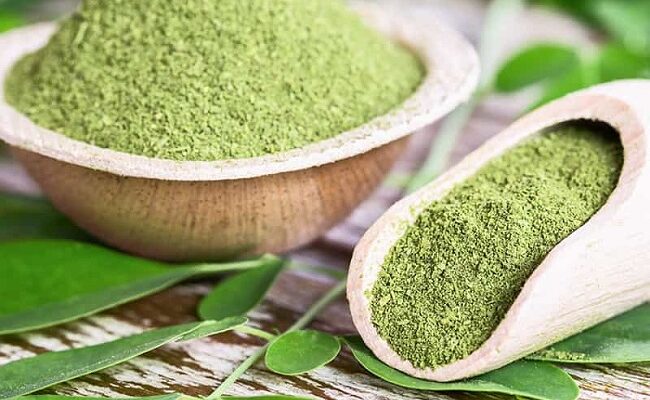
By Sade Oguntola
Moringa oleifera is a medicinal herb that is widely used but often in crude forms and arbitrarily. Now, experts say that excessive intake of moringa leaf decoction could be toxic to the liver and kidney.

Researchers, in a test in animals, said although the decoration of moringa leaf can help in improving conditions such as malnutrition, anemia, stress and arthritis, its excessive intake in normal health conditions can be fatal. They said that its indiscriminate consumption should be avoided in normal health conditions to prevent a possible high concentration of red blood and white blood cells in the blood. High concentration of red blood makes the blood thicker and less able to travel through blood vessels and organs.
It was in the 2022 edition of the Journal of Medicinal Plants Studies.
Moringa oleifera is said to possess numerous nutritional and therapeutic benefits hence has been the focus of most research. The most widely studied part of moringa is the leaves and has many reported beneficial uses in high cholesterol level, high blood pressure, diabetes, insulin resistance, non-alcoholic liver disease, cancer and inflammation.
Owing to the much acclaimed healing benefits of moringa, most applications of the plant are in the crude forms, which is in utter disregard to the possible adverse effect of the plant. Thus, considering its increased use, the issue of efficacy and safety of herbal medicines must be taken seriously as to ensure a safe public health.
This is very important as adverse health effects associated with the use of herbal products have been linked to both inherent toxicity of herbal medications and their contaminants. Hence the need to ensure the efficacies and safety profile of these medicinal herbs through scientific studies.
At the University of Port Harcourt, 20 male Wistar rats were randomly separated into five groups of five rats each for the test. While Group 1 served as control with no treatments, groups 2, 3 and 4 were treated with 40, 60 and 80mg/kg respectively of the moringa leaf decoction. Their blood samples were analysed after 28 days of treatment.
The fresh leaves of moringa were collected, washed and shade dried before intermittent boiling in a pot of water for 24 hours. The decoction was then sieved into clean sample containers and stored in the refrigerator. The stock for the administration was prepared from this filtrate.
They found that the moringa leaf decoction shows the tendency to significantly increase red blood cell, boost packed cell volume (PCV) and hemoglobin levels in the treated rats when compared to the untreated rats. Notably, these increases were in a dose-dependent manner.
In addition, increasing doses of the moringa leaf decoction elicited corresponding significant elevations in the blood level of Aspartate aminotransferase (AST), while the Alanine aminotransferase (ALT) level at 60mg/kg aqueous moringa leaf decoction was observed to be significantly reduced but at 80mg/kg of the leaf solution, it significantly increased.
According to the researchers, high levels of AST and ALT, both liver enzymes, are a sign of liver damage, but it can also mean damage to another organ that makes it, like the heart or kidneys.
The ALP levels at 60 and 80mg/kg of the moringa leaf decoction was observed to be significantly increased compared to that of the control. These may imply that the higher doses of moringa leaf extract may have the potential of increasing these liver enzyme levels.
The results show that at 80mg/kg of moringa leaf decoction, the treated group showed a non-significant decrease in the total cholesterol level when compared to that of the control group. There was a progressive decrease in the triglyceride (a kind of fat) levels in all moringa treated rats but at 60 and 80mg/kg of moringa leaf decoction, there were significant reductions.
In addition, the level of the good cholesterol decreased in all moringa leaf decoction treated rats and these decreases were significant in the higher doses (60 and 80mg/kg) of the moringa leaf decoction groups. Only the bad cholesterol level of the 60mg/kg moringa leaf treated group had a significant increase when compared to that of the control group.
Therefore, they said “the consumption of higher doses of crude moringa leaf decoction may not be helpful in overall lipid profile regulations in a mammalian model.”
The researchers declared: “This is thus a further indicator of the fact that the consumption of increasing doses of moringa leaf decoction in a mammalian model may result in some undesirable health effects which may outweigh its intended benefits.
“Thus, while a mild to moderate consumption of moringa leaf decoction may be somewhat beneficial, chronic consumption of the moringa leaf decoction may have some adverse effects on the mammalian kidneys and general metabolism.”








